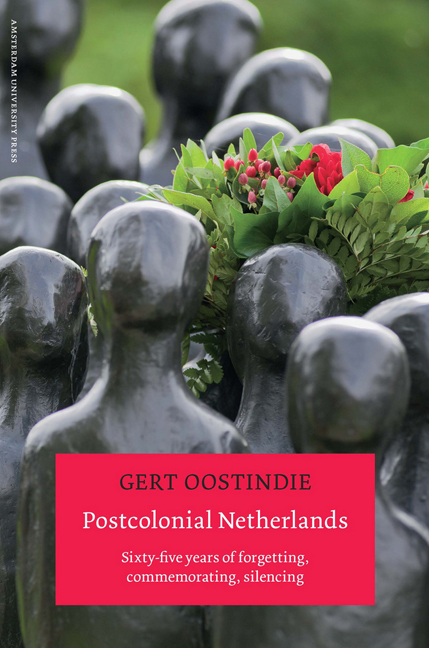Book contents
- Frontmatter
- Contents
- Introduction
- 1 Decolonization, Migration and the Postcolonial Bonus
- 2 Citizenship: Rights, Participation, Identification
- 3 The Struggle for Recognition: war and the Silent Migration
- 4 The Individualization of Identity
- 5 Imagining Colonialism
- 6 Transnationalism: a Turning Tide?
- 7 An International Perspective
- 8 ‘Postcolonial’ (in the) Netherlands
- Notes
- Bibliography
- Acknowledgements
- Index of People, Organizations and Memorial Sites
4 - The Individualization of Identity
Published online by Cambridge University Press: 20 January 2021
- Frontmatter
- Contents
- Introduction
- 1 Decolonization, Migration and the Postcolonial Bonus
- 2 Citizenship: Rights, Participation, Identification
- 3 The Struggle for Recognition: war and the Silent Migration
- 4 The Individualization of Identity
- 5 Imagining Colonialism
- 6 Transnationalism: a Turning Tide?
- 7 An International Perspective
- 8 ‘Postcolonial’ (in the) Netherlands
- Notes
- Bibliography
- Acknowledgements
- Index of People, Organizations and Memorial Sites
Summary
Repatriates from the Netherlands East Indies arrived in a country that had almost no experience of ethnic diversity within its own borders and where anyone who was not white was regarded peculiar and labelled as such. There was little patience for difference and the pressure to assimilate was great. No wonder Tjalie Robinson, in his constant struggle against that pressure to adapt, rendered Indisch identity through crass expressions: ‘Nations are made, ethnic groups are born: the Indo character is inherited and has little to do with logic or the thinking of “an orderly state”.’
Fifty years later, while such a characterization is considered scientifically unsustainable, it also resonates little with later generations of Indisch Dutch. For them, Indisch is more a vague feeling than the fixed ‘ethnic character’ portrayed by Tjalie Robinson. This relaxed approach to putting things in perspective reflects both generational change and the transformations the Netherlands as a whole has meanwhile undergone. In a multicultural society, the scope to define oneself as different on grounds of ethnicity or culture has become more a matter of individual choice than it used to be, a choice that no longer needs to be defended in the essentialist terms ‘Tjalie’ needed to employ in the 1950s. ‘Indisch identity’ has become more acceptable, but less clear-cut; the same goes for Moluccan, Surinamese or Antillean identity.
The space that is openly available for the commemoration and experience of postcolonial identities has become tangibly greater over the past few decades. This has also meant that previously ‘alien’ elements now form part of the nation's self image. Since the opening of the Moluccan Historical Museum in 1990, the government has supported various other institutions for the history, culture, and identity of postcolonial communities. This is remarkable, considering that by the 1980s there was no longer a policy of subsidizing minority languages and cultures. But because of the centuries of historical bonds, postcolonial minorities were allowed some leeway over other immigrants.
The Netherlands East Indies, in particular, became part of the national memorial culture. In 1996 the decision was taken to found an Indisch Memorial Centre (Indisch Herinneringscentrum); in 2001 this turned out to have been a failure marked by internal conflict, accusations of nepotism, and mismanagement.
- Type
- Chapter
- Information
- Postcolonial NetherlandsSixty-Five Years of Forgetting, Commemorating, Silencing, pp. 101 - 129Publisher: Amsterdam University PressPrint publication year: 2012



